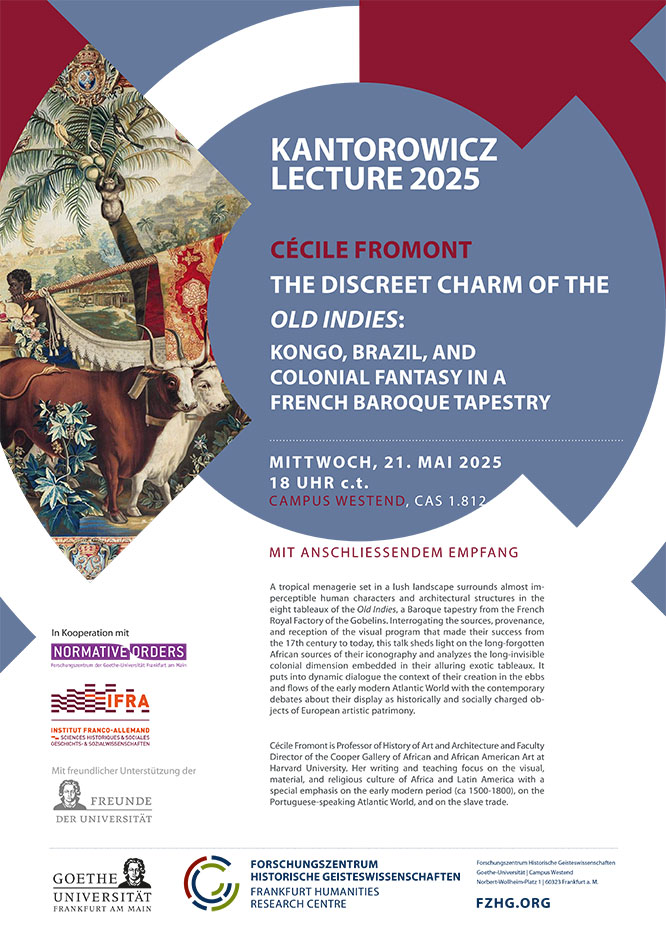What can a baroque tapestry tell us about colonial iconography?
A tropical menagerie in a lush landscape surrounds almost imperceptible human figures and architectural structures in the eight tableaux of the Anciennes Indes, a baroque tapestry from the French Royal Manufactory of Tapestries. In her lecture “The Discreet Charm of the Old Indies. Congo, Brazil, and Colonial Fantasy in a French Baroque Tapestry” as part of the Kantorowicz Lecture, on May 21, 2025 at 6:15 pm in the Casino Building, Room Cas. 1.812 on the Westend campus of Goethe University Frankfurt, Cécile Fromont will examine the sources, origins and reception of this successful pictorial program from the 17th century to the present day. She sheds light on the long-forgotten African origins of the iconography and analyzes the colonial dimension embedded in these seductive, exotic depictions. Her contribution links the context of origin in the early modern Atlantic region with current debates on the presentation of such works as historically and socially charged objects of European cultural heritage.
Cécile Fromont is a professor in the Department of the History of Art and Architecture at Harvard University and director of the Cooper Gallery at the Hutchins Center. She is the author of several award-winning books, including The Art of Conversion: Christian Visual Culture in the Kingdom of Kongo (2014) and Images on a Mission in Early Modern Kongo and Angola (2022). She collaborates with museums and institutions worldwide – most recently at the Venice Architecture Biennale 2023 – and contributes her expertise to media outlets such as Netflix, NPR, PBS, Arte, the New York Times and Le Monde.
The Kantorowicz Lectrure 2025 is a cooperation between the Research Center for Historical Humanities, Research Centre Normative Orders and the Institut franco-allemand de sciences historiques et sociales (IFRA-SHS). The event is open to the public and admission is free.
The annual Kantorowicz Lectures in Political Language commemorate Ernst Kantorowicz, an eminent historian who taught at the University of Frankfurt before being forced into exile in 1934. He later became one of the most internationally influential humanities scholars at the Institute for Advanced Study in Princeton. His work on political theology, sovereignty and medieval history is still groundbreaking today. The lecture series was launched in 2011 and is dedicated to various dimensions of “political language” in a broad sense. Previous guests include the philosopher and historian Quentin Skinner, the literary scholar Stephen Greenblatt, the composer and theater maker Heiner Goebbels and, in 2024, the historian Monika Dommann.


